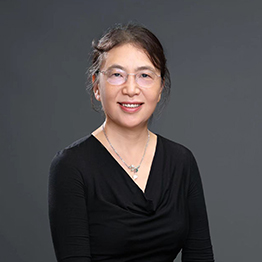Practical Learning Analytics for Teachers
Dialogical in Education


Papers
[1] Tore Hoel, Mengying Cao, Zhian Ming, Li Yuan, Explainable Perspectives on Artificial Intelligence Education: Ethical and Literacy Considerations, The Chinese Journal of ICT in Education, 2022. 4. 5-13
[2] John Gardner,Michael O'Leary,Li Yuan,Artificial Intelligence in Educational Assessment: ‘Breakthrough? Or Buncombe and Bally-hoo?’. Journal of Computer Assisted Learning, 2021. 37( 5), 1207– 1216.
[3] Li Yuan, John Gardner, Mengying Cao, The Potential and Limitations of Artificial Intelligence Education Evaluation Application. Open Education Research, 2021.27(5), 4-14.
[4] Li Yuan. Practice and Reflection on Blended Learning in British Universities in the post-COVID-19 Era. Construction of Higher Education System with Chinese Characteristics. Higher Education Press. 2021. 415-419.
[5] Rupert Wegerif, Shu Zhang, Li Yuan , Shaping Future Education for Swarm Intelligence: An Important Research Topic. The Chinese Journal of ICT in Education. 2022. 1. 4-10.
[6] Saveski, Grigorij & Westera, Wim & Yuan, Li & Hollins, P. & Fernán-dez-Manjón, Baltasar & Moreno Ger, Pablo & Stefanov, Krassen. What Se-rious Game Studios Want from ICT Research: Identifying Developers’ Needs, International Journal on Games and Learning Alliance, 2 016 vol 9599 (3),pp 32-41.
[7] Hollins P. and Yuan L (2018), ‘Evaluating the efficacy of digital games to develop communication skills in an Arts environment’, Computer & Education, ISSN 0360-1315 (In Press) .
[8] Powell, S., Oliver, B and Yuan, L ‘Handling Disruptive Innovations in HE: Lessons from Two Contrasting Case Studies’. Research in Learning Technology.
[9] Yuan, L and Powell S (2015) ‘Partnership Model for Entrepreneurial Innovation in Open Online Learning’, eLearning Papers 41, http://www.openeducationeuropa.eu/en/article/Innovation-entrepreneurship-and-education-In-Depth-41-3?paper=169497
[10] Yuan, L and Powell S (2013) ‘MOOCs and disruptive innovation: Implications for higher education’, eLearning Papers 33, http://elearningeuropa.info/en/article/MOOCs-and-disruptive-innovation%3A-Implications-for-higher-education?paper=124335
[11] Olivier, B and Yuan, L (2013), ‘Adaptive Roadmapping to Future Learning Landscapes’, Advances in Technology Enhanced Learning, https://itunes.apple.com/book/advances-in-technology-enhanced/id663022333?ls=1
[12] Ma, H.L., Yuan, L., Powell, S and Fu, G.S. (2011)‘Developing online learning new models by integrating Western Open courses’, e-Education Research, 2011 (9).
[13] Roberson, R.J and Yuan L (2011), ‘One Standard to Rule Them All?: Descriptive Choices for Open Education’, Open Education Research 2011 (04), http://openedu.shtvu.edu.cn/frontsite/index.asp
[14] Yuan, L, Xu P. and Wei Z. H. (2010), ‘Sustainability Issues on Developing Open Educational Resources’, Open Education Research 2010 (03), pp.80.
[15] Yuan, L., Gardner, J and Cowan, P (2006). ‘Examining trends in the use of computers in education in China from a Wood's national policy models perspective’, Asia-Pacific Cybereducation Journal 2. Dec, 2006.
[16] Yuan, L., Gardner, J. and Cowan, P. NOF ICT training for teachers in the UK: implications for the Chinese context: 4 – Issues arising from the evaluation, China Education Info, 1-2 66-68 (2006).
[17] Yuan, L., Gardner, J. and Cowan, P. NOF ICT training for teachers in the UK: implications for the Chinese context: 3 – Issues arising from the evaluation, China Education Info, 11 66-68 (2005).
[18] Yuan, L., Gardner, J. and Cowan, P. NOF ICT training for teachers in the UK: implications for the Chinese context: 2 - Programme implementation, China Education Info, 10 64-67 (2005).
[19] Yuan, L., Gardner, J. and Cowan, P. NOF ICT training for teachers in the UK: implications for the Chinese context: 1 - Overview of the New Opportunities Fund (NOF) programme, China Education Info, 9 60-65 (2005).
[20] Yuan, L., Gardner, J and Cowan, P. (2005a) ‘ICT Policy and Future Schooling – from a Wood's ‘National Policy Models’ Perspective’, China Education info., 117 (8), pp. 60-66.
[21] Yuan, L., Gardner, J and Cowan, P. (2005b) ‘NOF ICT training for teachers in UK: implications for the Chinese context (1)’, China Education info., 119 (9), pp. 64-68.
Publications
Key notes
[1] “Rethinking Digital Learning in Higher Education: Hybrid/Blended Learning at Post-Pandemic Universities”,International Education Conference of China Higher Education Council,2020.
[2] “AI enabled Education & AI Education for all:
Open Learning in AI Environment and AI Education and Training”, The Second World Conference on Artificial Intelligence,August 2019,Shanghai,
[3] “Ethics in AI in Education”,The 7th CyberPsychology and Behavioral Seminar,October 2019, Wuhan.
[4] “Learning in an Open World,” Asian and European Higher Education conference: ‘Self-learning in a digital era’. 2-4 November, 2015, Delhi, India,
[5] "The Trend and Exploration of Education Internationalization in the Internet + Environment", Seminar on the Internationalization of Education in China, November 16-17, 2016, Qingdao.
[6] “MOOCs and technology-enhanced learning: next steps and challenges”,Westminster Higher Education Forum Keynote Seminar,May 2015, London.
[7] “Chinese EdTech trends and opportunities”, British Educational Suppliers Association conference, November 2019, London.
[8] “The concepts, models and trends in online learning”, British and Irish University and College Library Association Congress,June 2014, Dublin.
[9] "Based on MOOCs, how to carry out Chinese-foreign cooperative Blended Learning?" The 15th China International Conference on Distance Education, December 1-2, 2016, Beijing.
[10] "Open Online Learning: Trends in European Policy and Practice", Foreign Education Review Conference, Center for Educational Policy Research and Development, Ministry of Education, December 27-28, Beijing.
[11] "MOOCs Perspective: Current Situation and Development Trend", MOOCs, Mobile learning and Micro-Courses, June 6-7, 2015, Chengdu.
Academic Conferences
[1] ‘Co-developing Ethical Principles for AI in Education’,The Association for Educational Communications and Technology (AECT) 2021, October 2021, US
[2] ‘The “Watercooler” Applied Game’, The Annual Learning Technology conference 2018, Sep 2017,Liverpool.
[3] ‘Learning Analtyics policies workshop’ The 7th International Learning Analytics and Knowledge (LAK) Conference at Vancouver, March, 2017
[4] ‘Evolution or Revolution? The future of the European Games Based Learning Industry’, The 10th European Conference on Games Based Learning ECGBL, Oct, 2016 ,Glasgow,
[5] “Learning Analytics: seeking answers at a time of big questions?” ALT-C, Sep 2014, Warwick, UK
[6] “New Strategies for Developing Open Online Courses in Institutions” The VI International GUIDE Conference , October 2013, Athens
[7] “Adaptive Roadmapping to Future Learning Landscapes”, ALT-C, Sept 2012, Manchester
